She graduated university aged 20, and at 21 she boarded a cargo ship with her new husband and travelled across the Pacific to South Korea, a fledgling democracy just beginning to recover from years of foreign occupation and war.
Fast forward 55 years to present-day and the now flourishing country has become her home, the language her language, the people her friends and family.
She's my role model and her adventurous spirit and knack for adaptation serve as a guideline for me when I travel.
This summer in Los Angeles, in anticipation of my three-week long sojourn to Korea, Grandma gave me some advice. Her face smiling under a smattering of freckles, she urged me to go to Jagalchi Market (자갈치시장)- perhaps wanting me to experience a fraction of the culture-shock she encountered when her ship first docked in Busan 50+ years before.
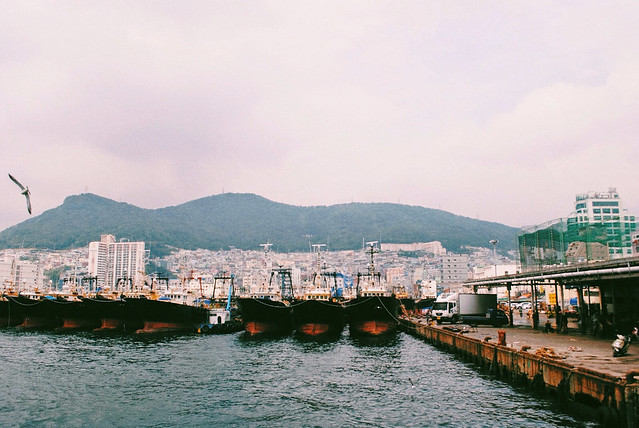
See, Korea is a thoroughly modern country now - all smartphones and skyscrapers and talking escalators - but the fish markets remain roughly unchanged.
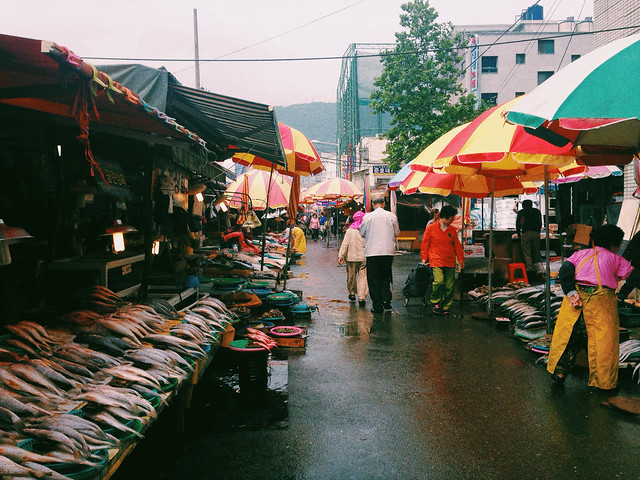
Three companions and I left early one drizzly morning (fishermen bring their catches in at crack of dawn, so to see the most action you have to rise and shine).
Getting to Jagalchi Market requires a 30-some minute drive out of the main city of Busan, crossing many a bridge along the curvy southern coast.
You'll find the fish market tucked among ramshackle industrial buildings on the edge of Nampo Port, where, as they have done year after year, fishermen unload their catch-of-the-day onto colourful stands and call out to potential customers to come buy their seafood.
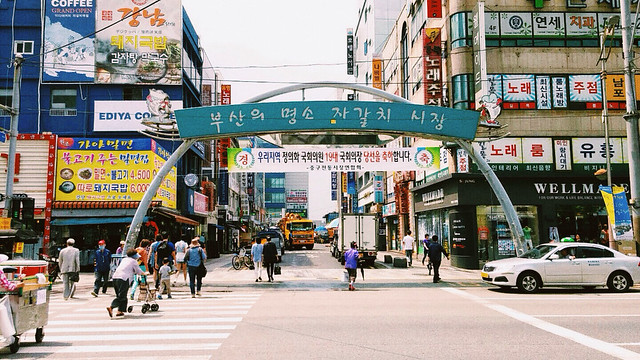
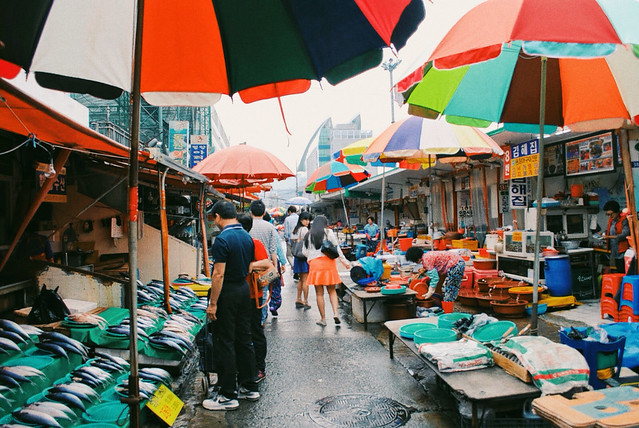
Although perhaps they've grown accustomed to the influx of tourists from around the world - many of the fishermen can shrewdly haggle in English and Japanese as well as in Korean - the routine of the market recalls simpler times.
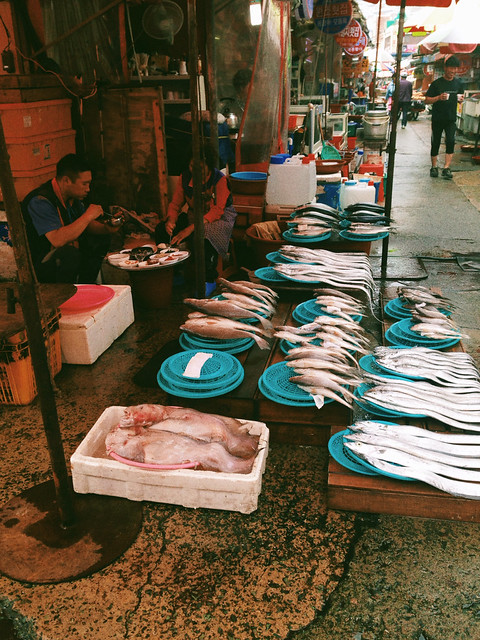
I don't know what your ideas or pre-conceptions about Korea are. But I can tell you that in my 15+ visits to Korea over my lifetime, this was a side of Korea I'd never experienced.
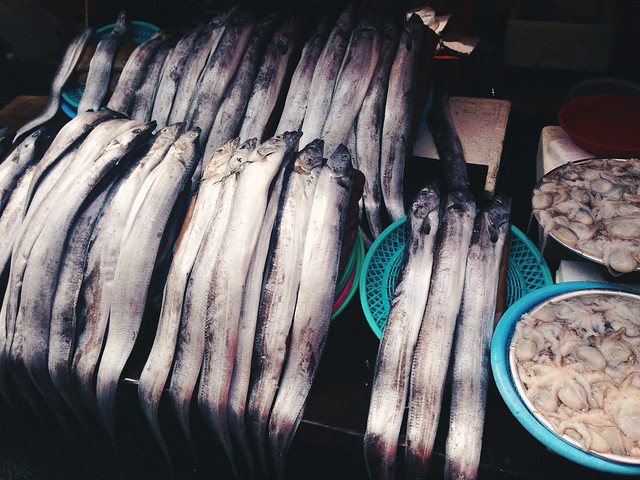
Despite surprisingly not smelling too fishy, it was a sensory overload. Old, pushy women with wrinkled brown skin sized me up as a customer and yelled sharply to me, trying to grab my business in all the languages they knew, not sure which one, if any, I understood.
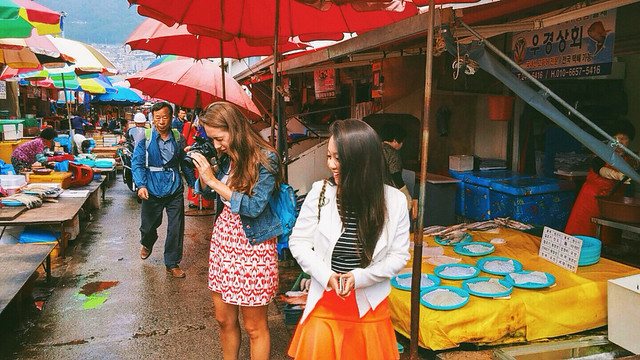
At one point we turned around to take a photo and felt a cold splash on the back of our legs. Upon turning around to see what it was, we shrieked - an octopus had escaped a bucket of his writhing comrades and was quickly making his way towards us.
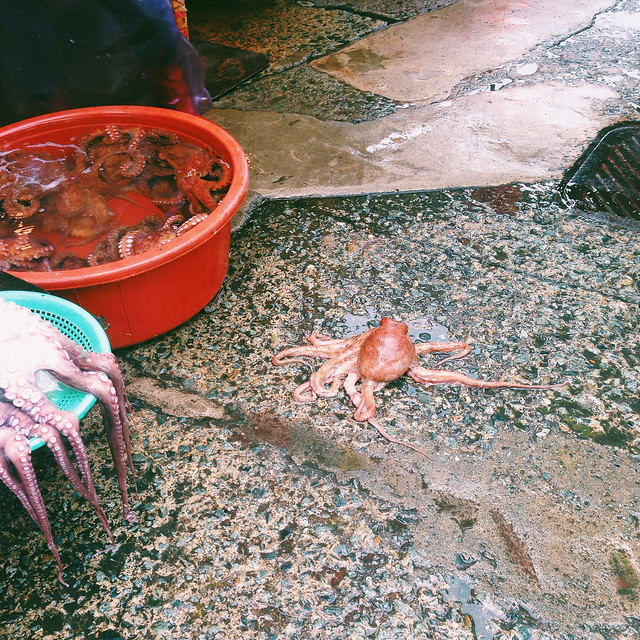
Unamused, the woman overseeing the octopi grabbed the runaway with a rubber-gloved hand and plopped him back in with his friends.
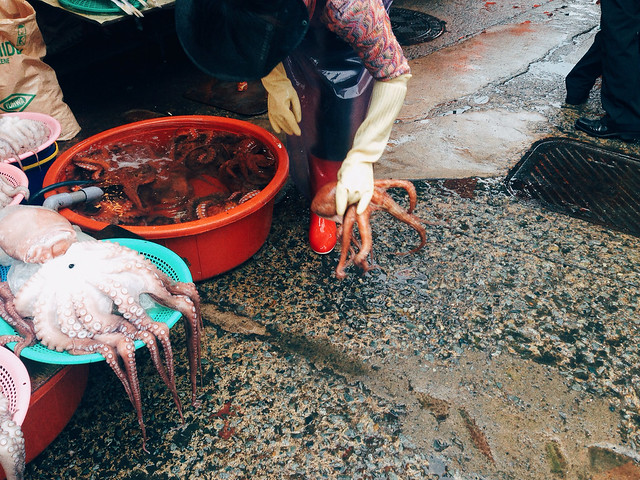
We strolled through the narrow street of the market, ducking sideways to avoid darting motorbikes and pointing at strange sea creatures, watching with interest as some fought with each other and some squirted water in protest of being contained.
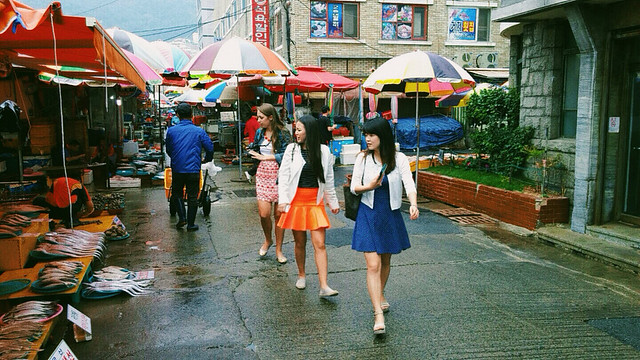
It was strangely fun peering into tanks and wondering how is that prepared? Is that edible?
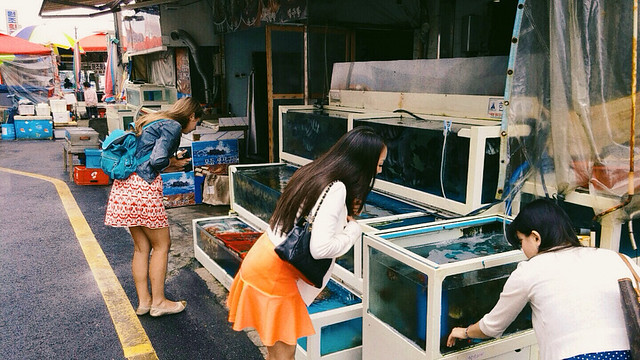
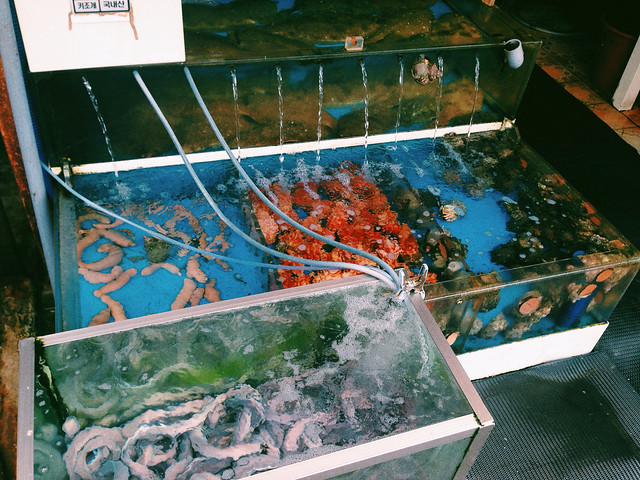
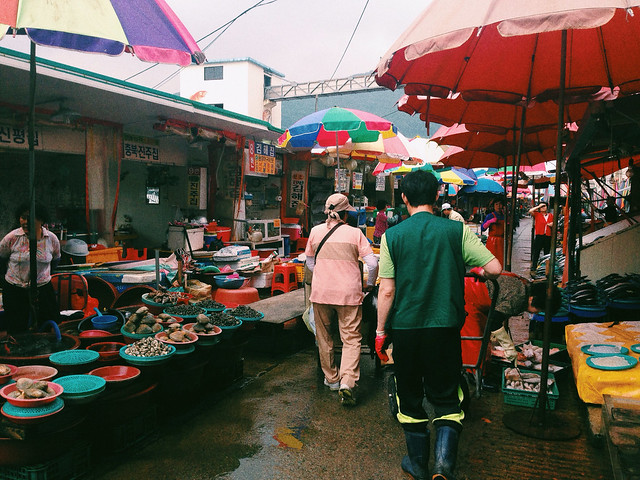
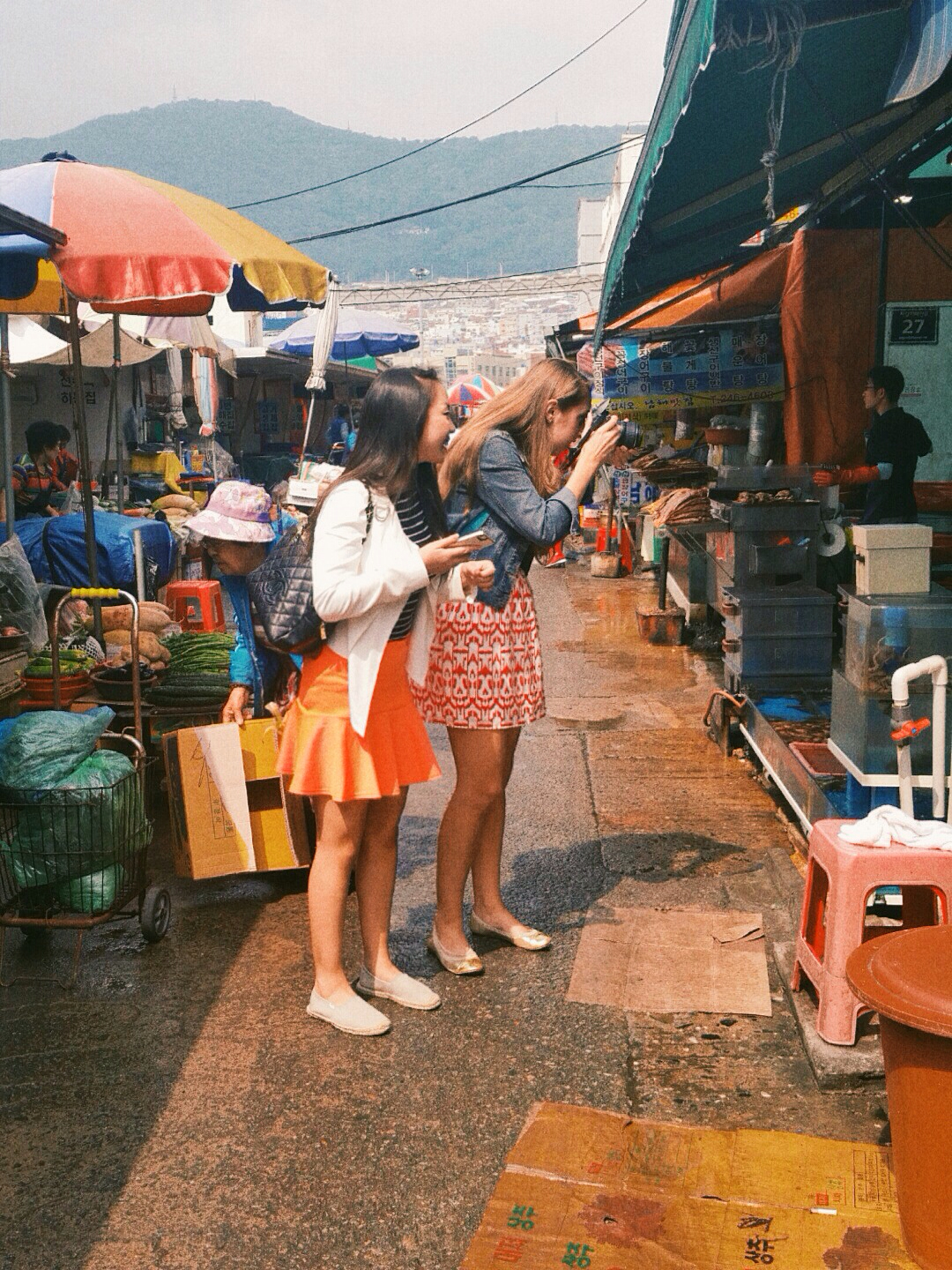
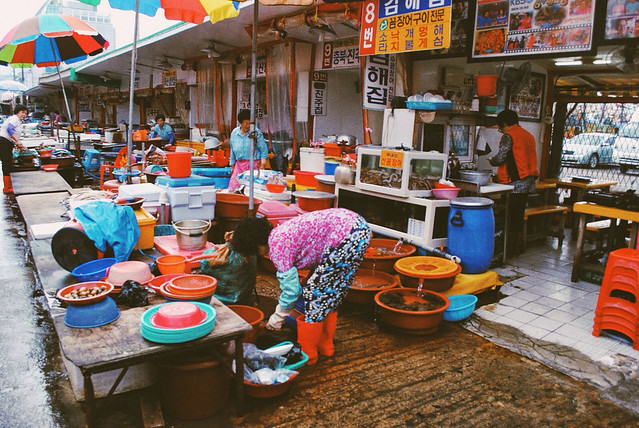
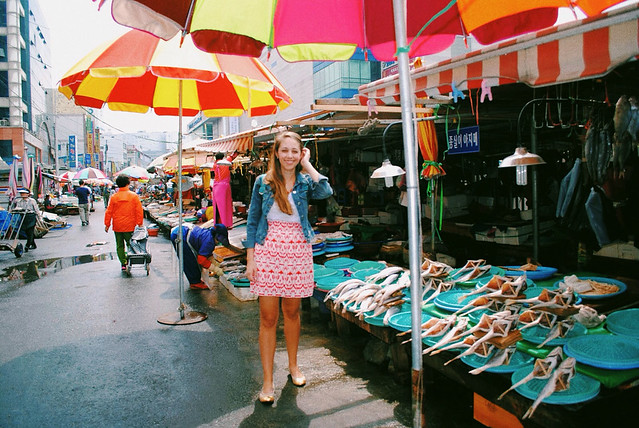
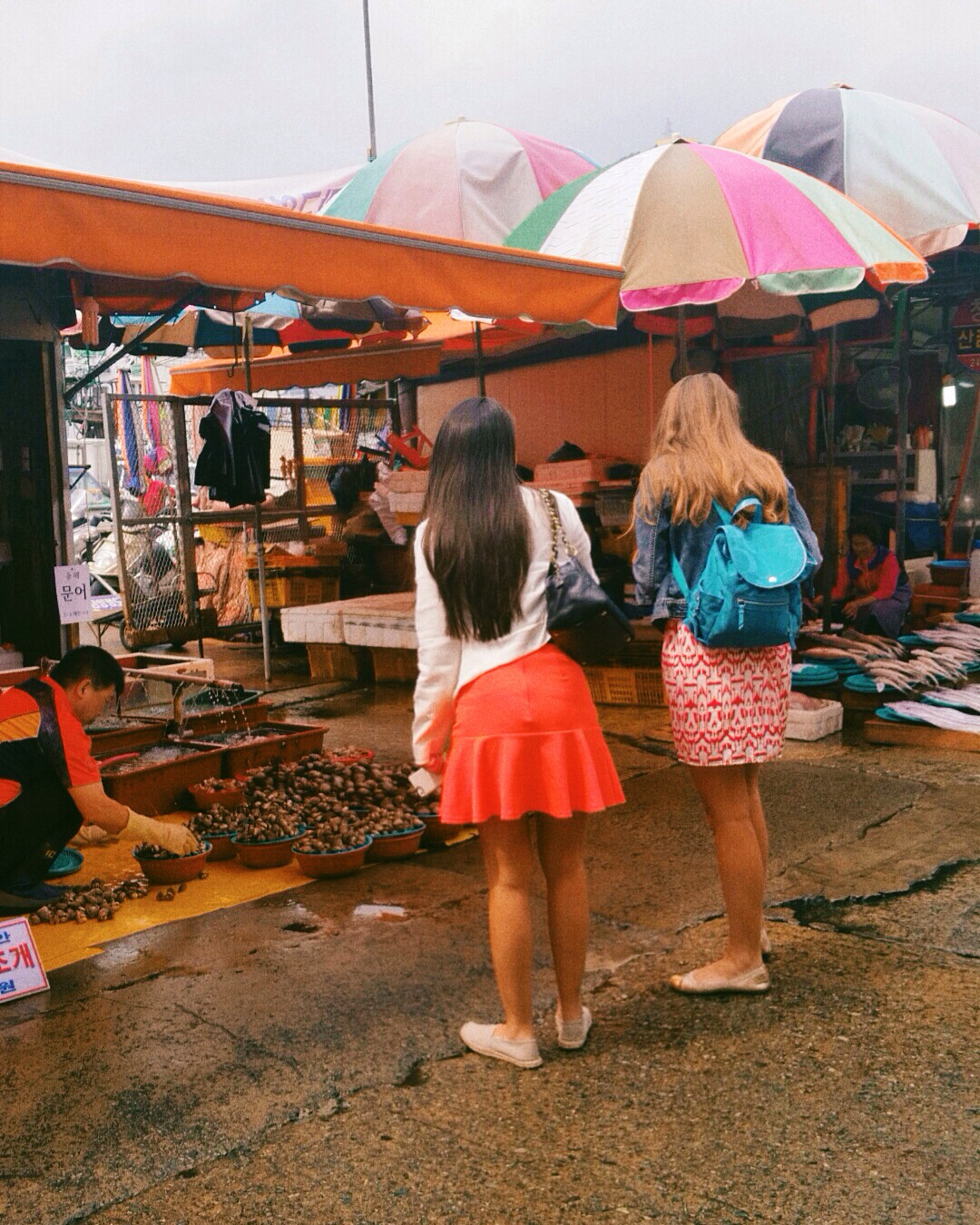
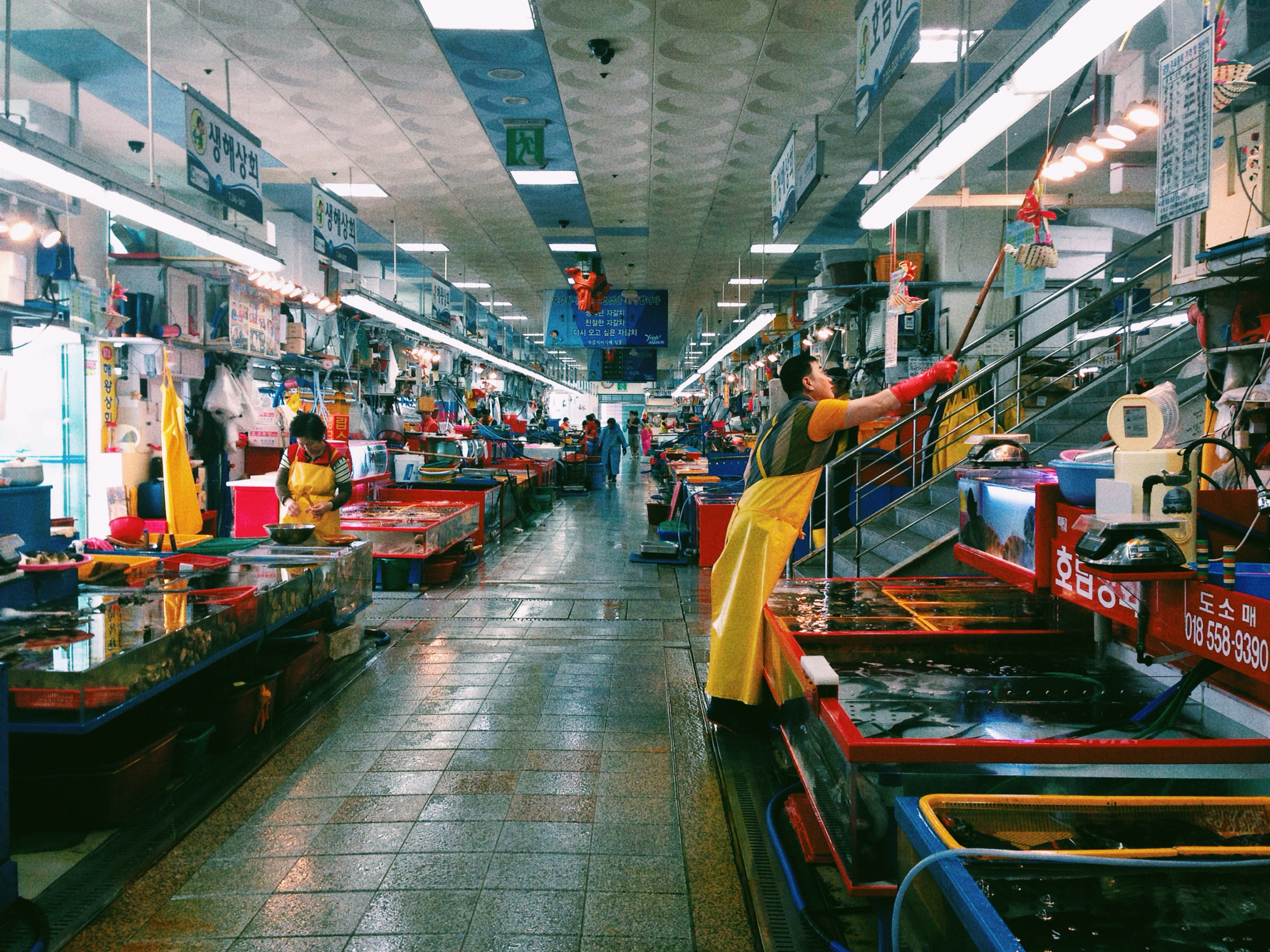
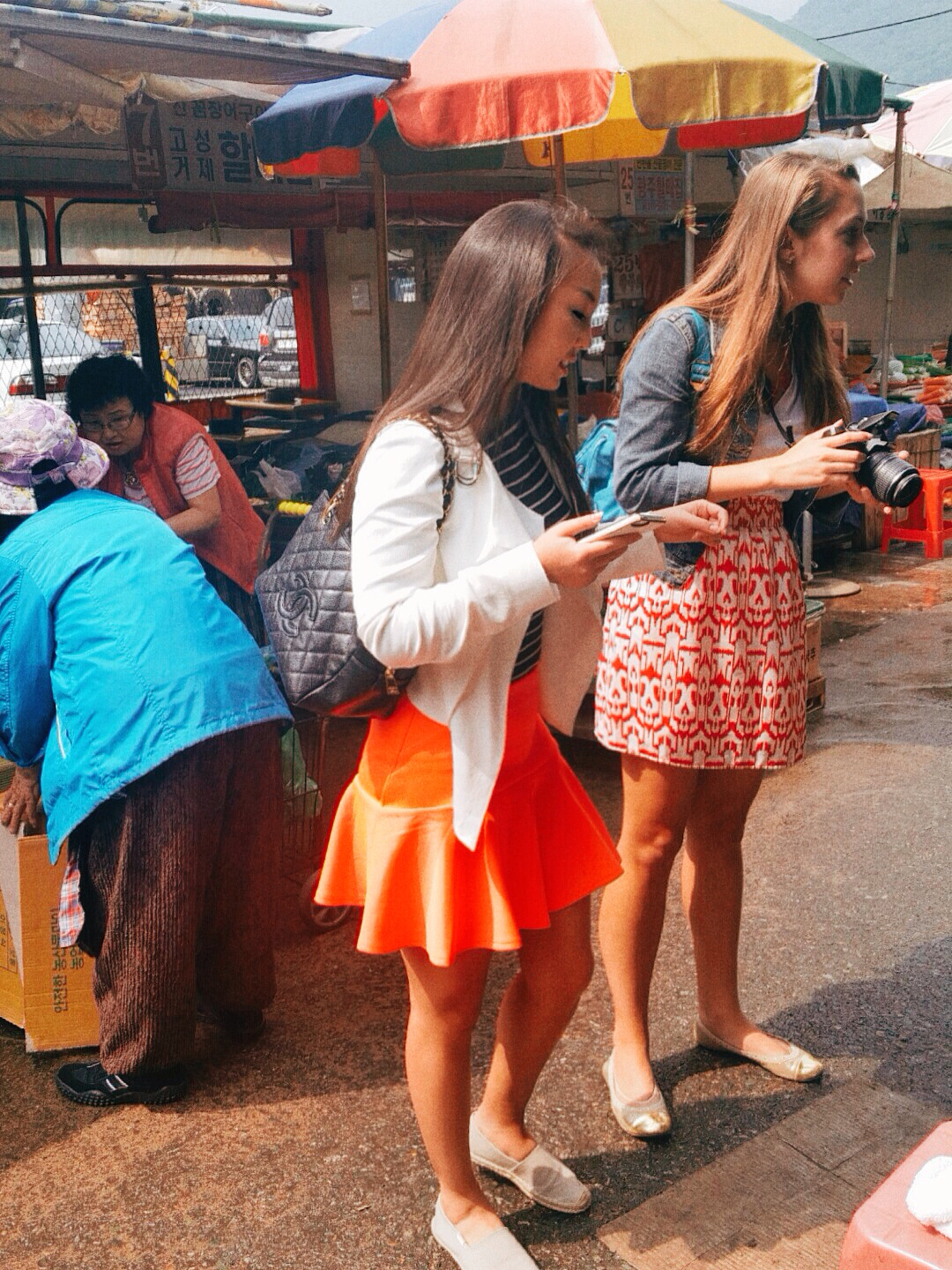
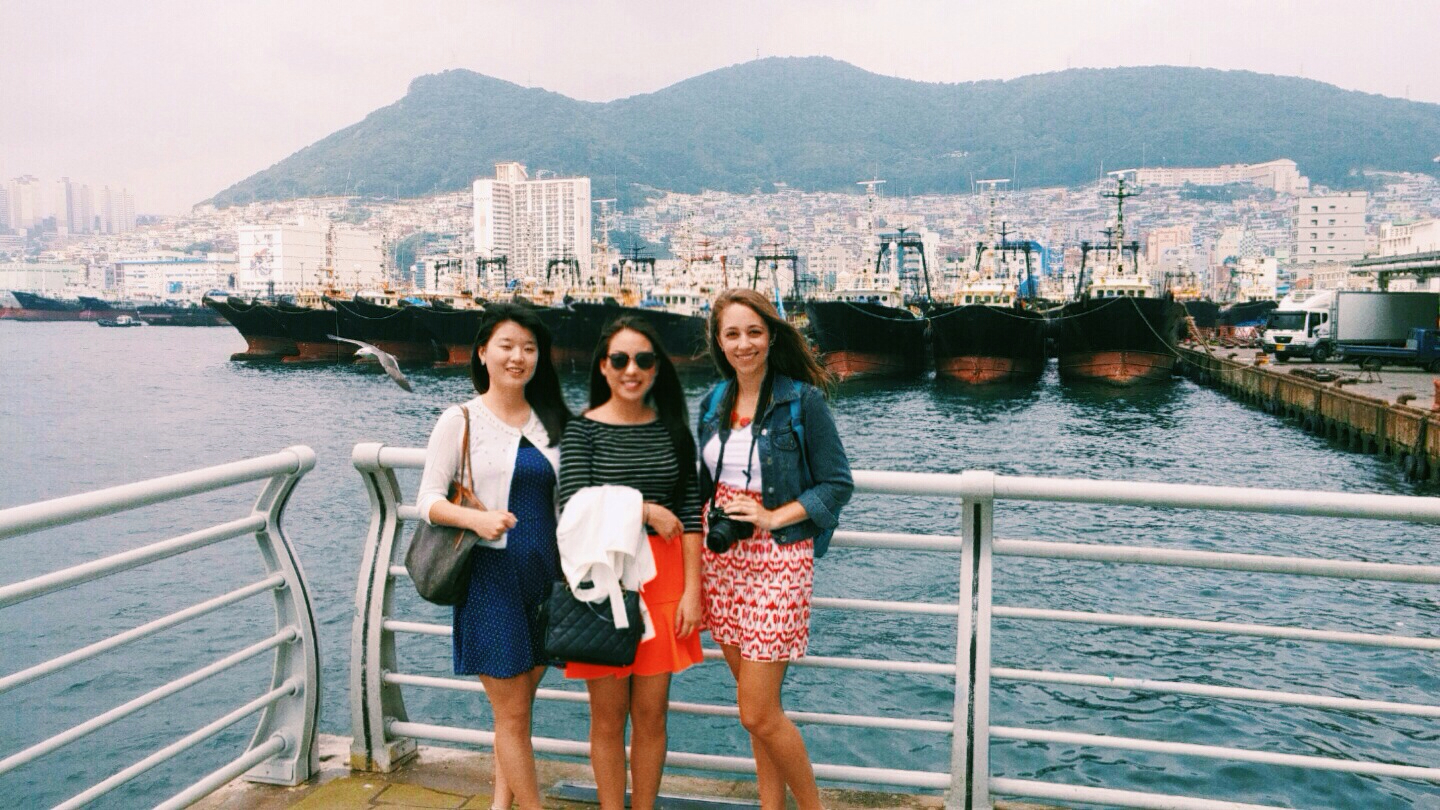
If you're ever in Busan, take a break from the shopping, fine hotels, and holiday beaches of the central city and get better look at Korea's culture and wildlife that Jagalchi Market has on offer. Information here.
No comments:
Post a Comment